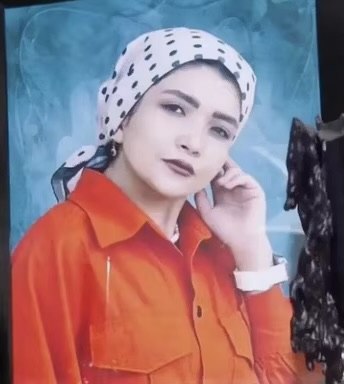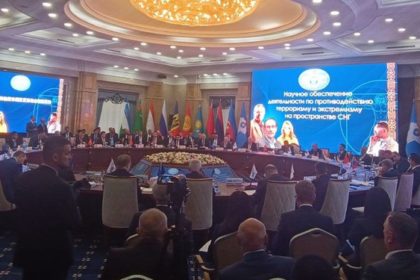RASC News Agency: Iranian authorities in Pishva County, located in Tehran Province, have confirmed the arrest of the primary suspect in the harrowing murder of Kubra Rezai, a young Afghanistani migrant whose dismembered body was discovered in early June. The case, which has sparked widespread outrage both within Iran and internationally, has become a stark emblem of the escalating threats faced by Afghanistani women in exile. Colonel Akbar Arabi, commander of Pishva’s police force, announced on Friday, June 13, that the suspect was apprehended following “specialized intelligence operations and rapid efforts” by criminal investigation units. During preliminary interrogations, the accused reportedly confessed to the murder. Authorities have, however, withheld details regarding the suspect’s identity and the motive behind the killing, citing the ongoing nature of the investigation.
According to local media and eyewitness accounts, Kubra Rezai an Afghanistani woman residing in Tehran went missing in mid-April while on her way to work. After weeks of uncertainty and silent desperation within the migrant community, on the evening of June 2, parts of her mutilated body were discovered by residents of Varamin, discarded amidst urban waste. The gruesome scene ignited a wave of public horror and catalyzed calls for immediate judicial action. Following the discovery, Iranian police reportedly prioritized the case, launching an urgent criminal inquiry to uncover the circumstances of the killing. While Iranian officials have emphasized the swift arrest of a suspect, activists argue that justice must not stop at prosecution it must confront the broader systemic neglect that enables such violence to go unchecked.
The murder of Kubra Rezai has galvanized migrant communities, women’s rights organizations, and civil society actors from across the region. Critics insist that the crime reflects more than an individual act of brutality it is indicative of the structural vulnerabilities and institutional indifference confronting Afghanistani women in exile. The Afghanistan Women’s Freedom Lantern Movement, an independent women’s rights coalition, issued a formal statement condemning the murder and demanding transparent legal proceedings. “Justice for Kubra Rezai is not only about her case it is a voice for every silenced migrant woman,” the statement declared. The group also called on international human rights bodies to pressure the Islamic Republic of Iran to fulfill its obligations under international conventions safeguarding the rights of migrants and women.
In a brief official response, the Taliban’s de facto embassy in Tehran issued a statement urging Iranian authorities to pursue the investigation in a “neutral and transparent manner.” While the Taliban regime’s statement condemned the act as “unforgivable,” critics have highlighted the group’s profound incapacity to meaningfully protect Afghanistani citizens abroad, particularly women, due to its regressive gender policies, lack of international legitimacy, and ongoing repression at home. For many observers, the Taliban’s token diplomatic gestures underscore a deeper truth: Afghanistani migrants remain effectively unrepresented, with no credible national body advocating for their rights on the global stage. This diplomatic vacuum is especially perilous for women, who face dual threats first from gender-based violence, and second from a system that fails to deliver them justice.
Human rights organizations have long warned of deteriorating conditions for Afghanistani migrants in Iran, particularly amid rising deportations, xenophobic rhetoric, and a surge in violence targeting refugees. The brutal murder of Kubra Rezai is the latest in a troubling pattern that includes arbitrary detentions, public assaults, and now, femicide. International watchdogs are closely monitoring the Iranian judiciary’s handling of the Rezai case. Many view it as a litmus test for whether Iran’s legal system can rise above its widely criticized treatment of migrant minorities and deliver justice in a case that has come to symbolize the urgent need for structural reform.
As Afghanistani women continue to flee persecution and systemic violence back home, their vulnerability does not end at the border. The case of Kubra Rezai is a chilling reminder that without legal protections, diplomatic advocacy, and public accountability, they remain dangerously exposed even in exile.






